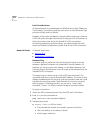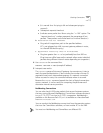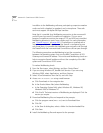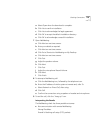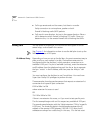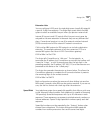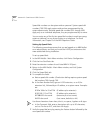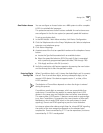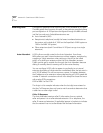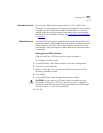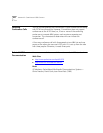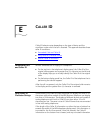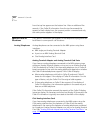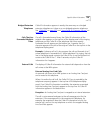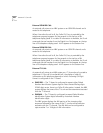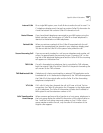
424 APPENDIX D: CONNEXTIONS H.323 GATEWAY
Receiving Calls ConneXtions gateways route incoming calls to any available H.323 port.
The NBX system then connects this port to the extension specified during
port configuration. H.323 ports are configured through the NBX software
just like line card ports. Selectable extensions are:
■ Auto Attendant (500)
■ Receptionist’s telephone (usually the lowest numbered extension on
the system, with a default of 1000 on the SuperStack 3 NBX system or
100 on the NBX 100 system)
■ Other extensions (each ConneXtions H.323 port can go to a single
extension)
Auto Attendant H.323 calls are usually routed to the Auto Attendant. From there,
NBX callers can reach internal extensions without operator assistance by
supplying a 3-digit extension when setting up the call (as the called
party), or by dialing an extension after the Auto Attendant answers.
Callers cannot get an outside line through the Auto Attendant because
dialing 9 normally diverts incoming calls to the name directory.
You can configure H.323 calls to appear to go directly to an internal
extension by adding a 3-digit extension immediately after the last octet in
an H.323 IP address. Do not use commas, spaces, or hyphens between
the IP address and an extension when programming an H.323 speed dial
number. IP network connections do not incur delays like those that occur
with analog PSTN connections.
8192
*
168
*
1
*
15
*
273#
The # sign in this example indicates when the last digit was entered so
that the Call Processor does not have to wait 4 seconds to determine that
a caller has no other digits to dial.
Caller ID Response
The Auto Attendant receives caller ID information from an outside
caller and passes it to a caller-selected extension. On a telephone, the
caller ID name and extension (if applicable) appear in brackets to indicate
that the network has not authenticated the enclosed information.



